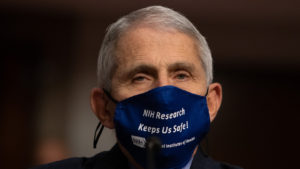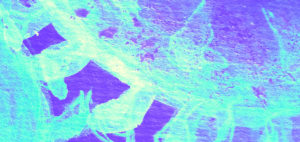Didn’t Die From Measles? Thank Clean Water, Not a Vaccine
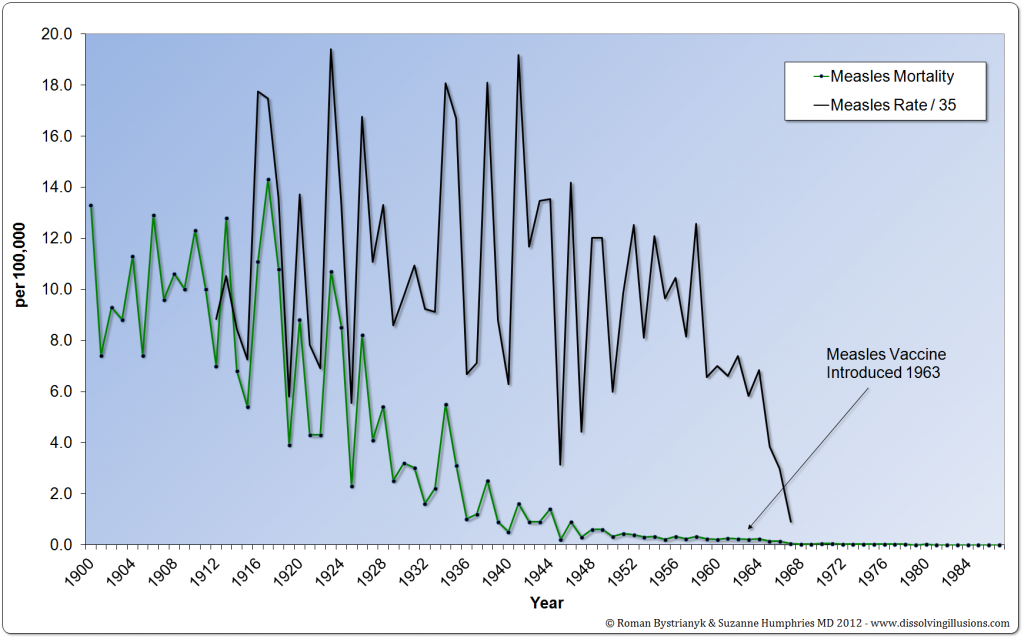
There’s no doubt that vaccines (inoculations) work to protect against infectious disease. They reduce incidence rates dramatically and thus reduce symptoms:

In the above chart, it’s clear that measles inoculation decreased incidence and no doubt its symptoms. But it’s not really clear what impact inoculation has against mortality.
When compared to mortality rate, the introduction of the vaccine looks much less impressive:

And the broader trend across other infectious disease is similar:
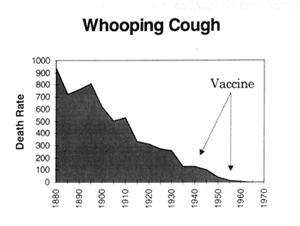 |
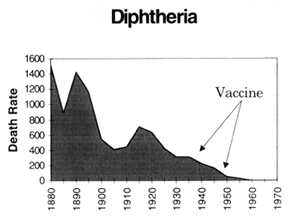 |
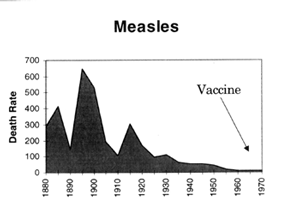 |
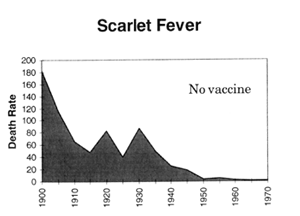 |
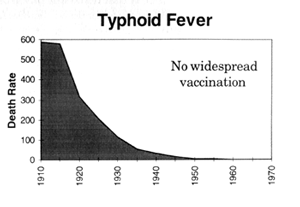 |
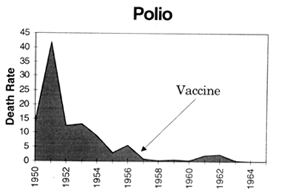 |

It’s clear that there was something else reducing the mortality from infectious disease. Dr. Andrew Weil sums it up:
Scientific medicine has taken credit it does not deserve for some advances in health. Most people believe that victory over the infectious diseases of the last century came with the invention of immunisations. In fact, cholera, typhoid, tetanus, diphtheria and whooping cough, etc, were in decline before vaccines for them became available – the result of better methods of sanitation, sewage disposal, and distribution of food and water.



